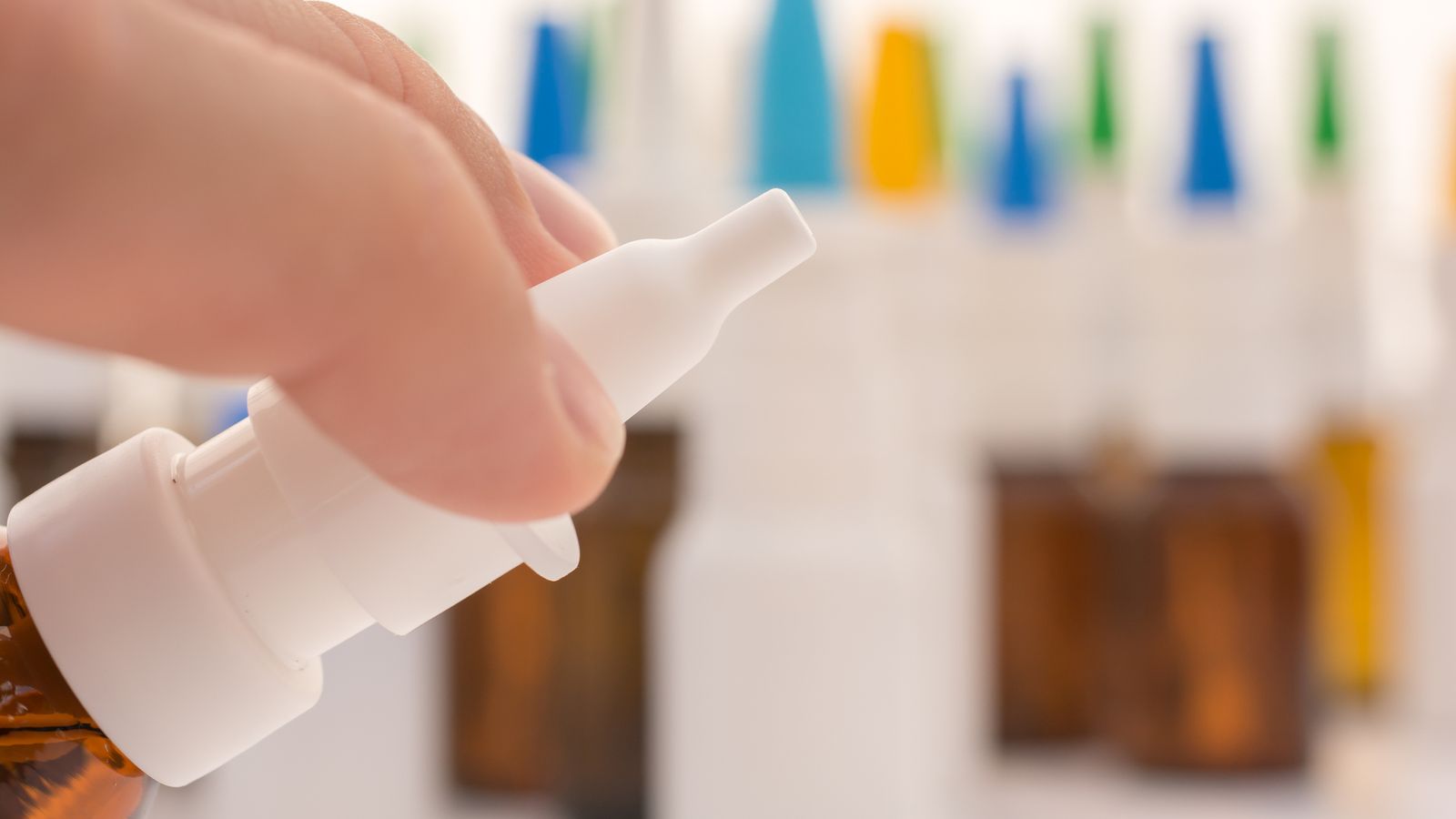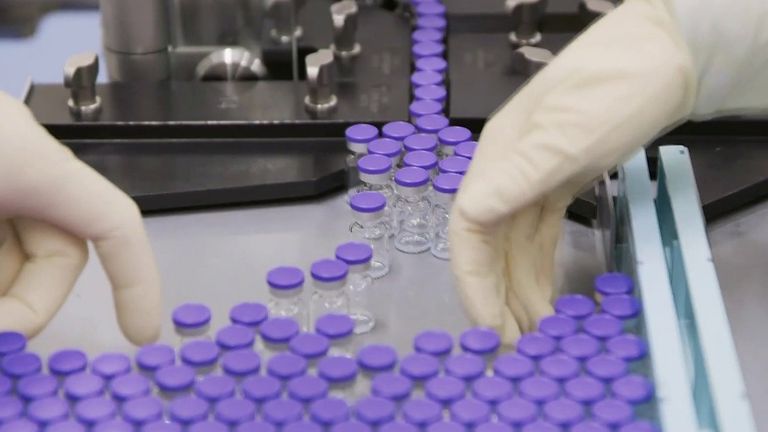A nasal spray purportedly capable of preventing infection from coronavirus, as well as stopping people from infecting others, has been developed by researchers at the University of Birmingham.
According to the study, which has not yet been peer-reviewed, it catches and coats the virus inside the nose, from where it can be eliminated by either nose-blowing or swallowing.
As the virus is encapsulated in the spray, it is prevented from being taken-up by the body, so if any virus particles are passed on to another person via a sneeze or cough, that person is less likely to be infected by active virus particles, researchers say.
Live coronavirus updates from the UK and around the world
Professor Liam Grover, one of the leading authors of the study, said: “Although our noses filter thousands of litres of air each day, there is not much protection from infection, and most airborne viruses are transmitted via the nasal passage.
“The spray we have formulated delivers that protection but can also prevent the virus being passed from person to person.”
The team set out to create a spray that could cover the inside of the nose evenly, and remain where it is sprayed.
According to the research papers, it is composed of two polysaccharide polymers. One is an antiviral agent called carrageenan, which is commonly used in foods as a thickening agent. The second is a solution called gellan, which was picked because of its ability to stick to cells inside the nose.
Cell-culture laboratory experiments showed the spray prevented infection for up to 48 hours.
Researchers say regular application of the spray could significantly reduce disease transmission, and believe it could be particularly useful in areas where crowding is less avoidable, such as on flights or in classrooms.
Subscribe to the Daily podcast on Apple Podcasts, Google Podcasts, Spotify, Spreaker
A spokesperson for the University of Birmingham told Sky News that there was “no specific funding” for the project, but that researchers “had been working on formulations for eyedrops that were funded by MRC (Medical Research Council) and NIHR (National Institute for Health Research)”.
“They were able to apply what they had learnt in that area to the development of the spray,” they added.
Co-author Dr Richard Moakes said: “This spray is made from readily available products that are already being used in food products and medicines, and we purposely built these conditions into our design process. It means that, with the right partners, we could start mass production within weeks.
“Products like these don’t replace existing measures such as mask wearing and handwashing, which will continue to be vital to preventing the spread of the virus.
“What this spray will do, however, is add a second layer of protection to prevent and slow virus transmission.”
It comes amid major breakthroughs in the race to find a COVID-19 vaccine, with the makers of two leading candidates announcing both jabs are about 95% effective.
But both candidates – from Pfizer and Moderna – are still months away from deployment at a mass scale and both face complex logistical challenges.
Data from early trials of the vaccine being developed by Oxford University have shown it produces a strong immune response in older adults.
With a second wave of coronavirus infections surging across the world, researchers are also looking for other ways to tackle the disease.

